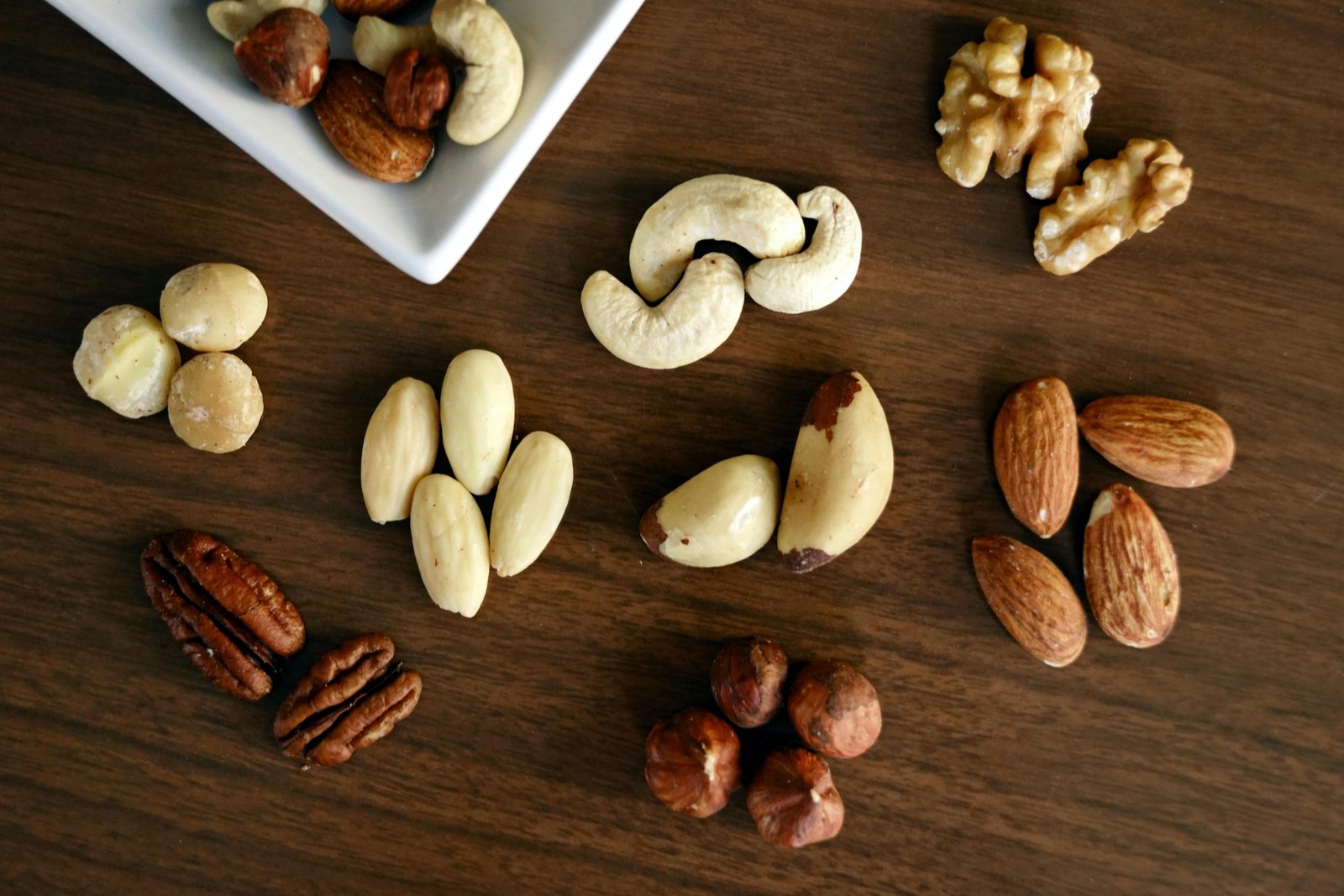Ask yourself which one was the most productive day you had last week and then recollect what you had for lunch that afternoon.
“You are what you eat?” It could be a cliché but one solution to most of the issues that could be troubling you. What you feed your body with doesn’t just influence your physical health but even your work productivity.
Besides supplying nutrition and energy to the body, the food that you take also dictates how your digestive system functions. Certain nutrients release long-lasting or, you may say ‘better energy’ than others. They help your body to feel better and think with optimum clarity than other foods. On the other hand, if you overeat or eat certain foods that may make you feel lethargic. That’s bad for your workdays.

Eating a balanced diet or supplying the right nutrients to your body is like using premium fuel for your automobile!
Will you still use economy fuel if you knew, your car offers more mileage and works more efficiently on lead-free premium fuel? That holds true for your body as well; feeding the best nutrients is an ideal way to remain energetic and be your productive best at work. Food directly impacts cognitive performance. This is why many people experience an afternoon slump after relishing delicious but unhealthy food at lunchtime.
What you eat in a day has a direct or indirect effect on your overall health and wellness. So, it is extremely important to eat the ‘right’ meals throughout the day, especially on your working days.
Productivity-Boosting Foods
The food we eat is converted into glucose by our body on digestion nourishing our organs and supplying energy to our body and mind. When there is a deficit of glucose, we face difficulty in focusing and concentrating. It is also responsible for afternoon sluggishness. Now, you may say that not all of your colleagues face such a situation. This is because the metabolizing rates of all foods aren’t the same; they also differ from person to person. Some foods can release glucose more quickly than others supplying ample energy in the beginning and rapid depletion later. While other foods provide prolonged energy in lieu of more effort from the digestive system. An overworking digestive system can bring down oxygen levels in the brain and eventually make us sleepy.
Carbohydrates
Carbohydrates are one of the three macronutrients that act the primary source of energy for humans. They can be present in a number of foods, including whole grains, vegetables, and fruits, and in different forms, such as sugars and dietary fiber. Like anything, consuming too much or too few carbohydrates can hurt our health.
Carbohydrates supply the energy that our bodies require for performing activities. They alter blood sugar and insulin levels, as well as fat metabolism in our bodies, aid digestion, and influence how nutrients are absorbed during digestion.
The body absorbs simple carbs and converts them into fast energy. These include simple sugars and fruit juices. Complex carbs last longer and take more time to produce energy.
Complex carbs are contained in foods such as whole grains, pasta, and cereal. Additionally, complex carbohydrates contain more minerals and fiber, which can help us feel full after eating them.
Not obtaining enough carbs (also known as "low blood sugar") can cause us to feel weak, sleepy, and have difficulty concentrating. Low glucose levels in the body can also impede self-control, resulting in a diminished capacity to stay on task and be productive at work.
When you consume carbohydrate-rich foods, it produces more insulin and boosts up the production of hormones (serotonin and tryptophan) that make you lethargic and sleepy.
Carbohydrates that can boost workplace productivity are:
- Brown rice – has more nutrients than white rice and energy to the body for a longer time
- Whole grains – these provide magnesium, which supports cognition function
- Dark chocolate – this contains flavonoids, providing antioxidants to the brain (choose chocolate that is high in cacao and low in sugar)
Fruits and Vegetables
Research has proven that eating fruits and vegetables throughout the day benefits both the mind and the body. British researchers led to the discovery that eating more fruits and vegetables boosts your creativity, and productivity and thus makes you happier. The nutrients in fruits and vegetables promote dopamine production in the brain, which is responsible for engagement and motivation. Fruits and vegetables include antioxidants, which help to improve memory and mood.
Some of the best fruits and vegetable choices for workplace productivity are:
- Bananas – Potassium and carbohydrates found in bananas provide long-lasting energy
- Kale and Spinach – Leafy greens are rich in iron and supply oxygen throughout your body’s cells to create energy and enhance productivity
Berries – They are a great source of antioxidants, protect the brain from possible damage, and improve communication between neurons.

Protein
An adequate amount of protein consisting of amino acids, helps you to remain active throughout the day. If you do not have the required amount of protein then it will cause muscle loss and breakdown of tissues. On the other hand, if your body gets more protein than it needs then it will store excess protein as fat.
The U.S. Department of Agriculture and the U.S. Department of Health and Human Services say that girls above 14 years need 46 grams of protein daily, while men above 19 years and over need 56 grams. Ten to 35 percent of your everyday calories should consist of protein.
Good protein choices for productivity include:
- Salmon – It is one of the most trusted sources for omega-3 fatty acids that keep your energy levels high and, your brain healthy and all of these make you productive at work.
- Lean meat – The leanest meat that you can get is the best for avoiding saturated fat
- Lentils – Rich in protein and fiber with negligible sodium or saturated fat.
- Nuts and seeds – You can derive protein from these plant-based sources, they are low in fat and sodium.
- Whole grains - They contain a generous amount of protein; thus, whole grains like quinoa, rice, and millet are highly sought-after sources of plant-based protein.
- Poultry and eggs – Rich sources of protein.
- Dairy foods – Think yogurt, cheese, and milk.
Water
Our body weight is made up of 50-70 percent water. We rely on water to survive. It's no surprise, then, that water is the best way to stay hydrated during the day, particularly to retain productivity. Researchers have found that even two percent dehydration can impair cognitive performance, resulting in deficiencies in short-term memory, visual tracking, and arithmetic skills.
How much water should you drink each day?
The standard eight glasses of water every day is an ideal suggestion. However, it is only an average suggestion; you may need more or less. Drink when you're thirsty. The United States Academy of Sciences, Engineering, and Medicine recommends that males drink 15.5 cups of water each day, and women drink 11.5 cups of water every day.
If you are drinking adequate water, you will not feel thirsty and your urine will appear colorless or light yellow, which are signs of a well-hydrated body and well-functioning systems.
Magnesium
One of the key nutrients that can deal with stress and anxiety is magnesium. Leafy green vegetables such as spinach and kale, dark chocolate, and steaks are potent sources of this nutrient. Magnesium also brings relaxation to the muscles allowing an individual more scope to be productive.
Phenylalanine
An amino acid called phenylalanine is responsible for the production of dopamine in your brain, which is found in almonds and other foods. An adequate amount of dopamine in the brain results in better mood, motivation, and thus better productivity at work.
Choline
Choline is a B vitamin that has been linked to improved concentration and reaction time. It is believed to improve the functioning of neurons in the brain. Eggs contain choline and are high in protein.
Not just the meals but even your meal timings are equally important. Eating modest meals throughout the day can help keep the body's glucose (or energy) levels stable. Maintaining stable glucose levels prevents blood sugar spikes and drops in blood sugar, which are harmful to the brain and hence reduce productivity.

Foods That Are Bad for Productivity
Foods containing certain components can adversely affect productivity. No food is "bad" food, but there are certain foods that should be consumed in moderation. It is for maintaining good health and higher work productivity.
Salt
Dehydration slows down productivity which can be caused by consuming excessive salt (or sodium). Snacking on salty chips or pretzels throughout the workday may make you lethargic and are certainly not the best snack for increasing productivity.
Do you know that the American Heart Association has suggested that individuals should restrict themselves to not more than 2,300 mg of salt in a single day? Additionally, they must balance it by consuming 1,500 mg of sodium. You might think, "I'm fine because I don't add salt to my food." That’s a misconception; more than 70% of Americans' sodium intake comes from packaged, prepared, and restaurant foods, not salt shakers. Be aware of the amount of salt in the foods you eat throughout the day. Read nutrition labels and nutrition facts on the product before ordering.
Saturated Fat
Foods high in saturated fat reduce productivity. They also promote weariness by causing your brain to produce the sleep chemicals serotonin and tryptophan. The American Heart Association suggests that you consume only five to six percent of your total daily calories from saturated fat. So, if you eat 2000 calories a day, just 120 calories should come from saturated fat which is 13 grams (approx.) of saturated fat that you can have every day.
Animal-based foods, fatty meats, birds with skin, butter, lard, cream, baked goods, fried dishes, cheese, and other whole-fat dairy products are examples of saturated fat-rich foods, that you must avoid having in your workplace to remain productive throughout the day. Even reduced-fat dairy products can contain excessive amounts of saturated fat. So beware!
Sugar
Contrary to popular perception, sugar isn’t always the villain in your meals. In fact, it is essential for a well-balanced, nutritious diet and survival. Sugar supplies energy to the body, allowing our muscles to function, energize the brain and nervous system, promotes metabolism. It is also stored in the liver and muscles as glycogen, which serves as a backup energy source.
Excessive sugar restriction can cause hypoglycemia or low blood glucose levels. An individual with lower than 70 mg/dL of fasting blood sugar is hypoglycemic. You can also keep a check for symptoms like pale skin, abnormal hunger, irritation, weariness, irregular heartbeat, perspiration and unusual anxiety. If left untreated, it can cause confusion, convulsions, blurred vision, and loss of consciousness.
The American Heart Association recommends that men must not eat more than 37.5 grams (nine teaspoons) of sugar every day, and women, not more than 25 grams (6 teaspoons) of sugar per day. You must keep a check to ensure that sugar doesn’t exceed 10 percent of your daily calories, better if less.
The trick is to consume healthy sweets while limiting harmful sugars. Fruits and vegetables contain fructose, which is a natural sugar, and hence don’t pose any risk to your health. Apples, bananas, peaches, grapes, plums, and starchy vegetables are all good examples. Sodas, donuts, pastries, cakes, chocolates, and sweets are all examples of unhealthy sugars that should be avoided in order to increase productivity. Excessive amounts of these can quickly destroy productivity.

Alcohol
According to the National Institute on Alcohol Abuse and Alcoholism, alcohol is the most commonly used and misused drug in the United States. It goes without saying that alcohol lowers workplace efficiency and should be avoided during the workday. Alcohol not only reduces productivity, but it also promotes employee absenteeism and increases the likelihood of workplace accidents and injuries. Delay alcohol drinking until after work hours.
Caffeine
Caffeine is one of those perplexing additives. Some people think that caffeine boosts work, while others believe it decreases productivity. A 2013 study discovered that caffeine can help us focus on a task while inhibiting creativity. It can also help to focus conversations in workplace meetings, hence increasing participant involvement.
What's the recommendation? Caffeine is fine in moderation, but the FDA recommends not more than 400 mg per day (equivalent to four to five cups of coffee).
Everyone is unique, and only you can determine your tolerance. Some folks grow jittery and agitated after only two cups of coffee each day. Understand your limitations to remain productive.
Final Thoughts
Fine-tuning is the key to enjoying food without affecting productivity at work. Or you can say, using food to boost work productivity. If you have gone through the entire article then you have a profound understanding of the nutrients (vis-à-vis foods) that can boost productivity and even the ones that can affect productivity. Thus, you are in the best position to make the best food choices for remaining at the top of your game. If you are still concerned about balancing your diet to maximize workplace productivity, you can consult a nutritionist for the needed guidance. Or, you could even consider studying nutrition to become a nutritionist or health coach yourself!


